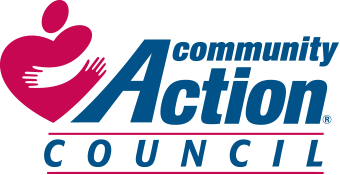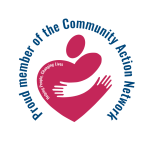Shelter is a basic human need. The Council believes that all individuals in our community should have access to safe, decent, stable, and affordable shelter. Unfortunately, people with low or insecure income are at increased risk of experiencing homelessness—especially in areas with limited affordable housing options. Many other interrelated circumstances can also factor into one’s risk of becoming homeless: family conflicts or domestic violence; mental or physical health conditions and disabilities; substance abuse disorders; or simply one-time unforeseen crises that create financial hardship.
Housing insecurity diminishes quality of life for all people, but especially vulnerable populations such as children, the elderly, and those with disabilities and chronic medical conditions. The lack of access to a secure, private living space can be both a result of poverty and a hindrance to gaining the social and psychological stability needed to move out of poverty.
Operating in both rural and urban areas throughout Central Kentucky, the Council works to prevent homelessness and improve residential living conditions for individuals and families. The priorities AND goals of the Council’s housing programs are:
- To provide emergency assistance for individuals and families who are without shelter or are in immediate danger of losing shelter
- To provide supportive services that help remove barriers to obtaining and maintaining housing
- To help maintain and increase the community’s stock of safe, affordable, and accessible housing
Supportive Housing Programs
The Council operates several supportive housing initiatives that work together to help people from all walks of life secure stable, long-term housing. Due to a deficit of community-based programs that allow families to stay together while they experience inconsistent housing support, the Council’s programs focus especially on providing housing support that keeps families together during housing transition periods. The programs run by the Council currently include: Continuum of Care homelessness prevention; Emergency Family Housing (EFH) short-term emergency shelter for two-parent and group families; Sheperd Place subsidized apartment complex for those 55 and older; Permanent Housing Bonus Initiative for disabled individuals and families; Project Independence for families experiencing homelessness, among others.
Continuum of Care Program
The Council operates the Continuum of Care homelessness prevention program for 16 rural counties in Central Kentucky. Continuum of Care programs, funded through the U.S. Department of Housing and Urban Development (HUD), allow for community-wide coordination and sharing of resources to address the multiple needs of people who are at risk for or experiencing homelessness. Participants may be offered housing/rental assistance and an array of supportive services that will help them move into permanent housing and achieve long-term stability.
Emergency Family Housing (EFH) program
The EFH program provides short-term emergency shelter and supportive services for two-parent and group families in Lexington-Fayette County who are experiencing homelessness.
Permanent Housing Bonus Initiative
The Permanent Housing Bonus Initiative program is offered through a cooperative partnership between the Council and Kentucky River Foothills Development Council (KRFDC). This program provides subsidized housing and supportive services for disabled individuals and families experiencing homelessness.
Project Independence
Project Independence provides housing assistance for families experiencing homelessness. Participating families are given access to shelter and provided with assistance for meeting basic needs. Program staff then work individually with families to set and meet specific goals that will allow them to move into stable permanent housing and prevent future homelessness.
Tenant-Based Rental Assistance (TBRA)
The TBRA program provides rental assistance for individuals and families with low income. Participants are provided with vouchers to offset rental costs for approved private-market housing units of their choice. The program promotes fair access to housing and greater economic integration of neighborhoods.


